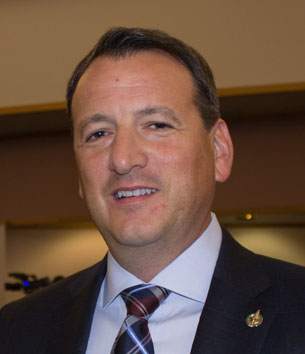
OTTAWA – The federal government is soliciting feedback on their consultation paper – Seizing Canada’s moment: moving forward in science, technology and innovation – to inform a revised science, technology and innovation strategy to be released later this year. This will update a strategy adopted in 2007 entitled Mobilizing Science and Technology to Canada’s Advantage. “Most of the questions posed in the consultation paper are focused on business innovation,” said Dr. Scott Findlay, Professor of Biology at the University of Ottawa. “While business innovation is certainly important for our economic prosperity, many other aspects of Canadian science are equally important for the long-term well-being of Canadians.”
There appears a clash between the government and some scientists. Some are claiming that the Government is too focused on research that will assist business. The Government appears to be looking to invest tax-dollars where there will be a benefit to business and society.
Greg Rickford, Minister of State (Science and Technology), was in Québec City recently, to celebrate the new Business-Led Network of Centres of Excellence in Precision Therapeutics (PreThera Research). “The BL-NCE program promotes private sector innovation by blending the expertise of researchers in post-secondaryinstitutions with the private sector’s drive to solve real-world problems. In supporting PreThera Research, our government is capitalizing on the expertise of researchers and the private sector, spurring investment in R&D and encouraging innovation in cancer research, a priority area for Quebecers and Canadians,” stated Minister Rickford.
As a result of the 2014 Business-Led Networks of Centres of Excellence (BL-NCE) competition, PreThera Research was awarded $15 million. This support will enable the Network’s researchers to apply their knowledge of biomarkers—proteins and genes used to identify subtypes of cancer and monitor their progress—in developing innovative, personalized treatments for individuals with cancer.
On January 22, 2014, Minister of State Rickford announced the results of the most recent BL-NCE competition. Four research networks, including PreThera Research, have been awarded $49.7 million over five years to address industry research and development (R&D) challenges.
Evidence for Democracy in a media statement says, “The consultation paper makes no reference to science and technology development by government agencies and departments other than those related to business. Any comprehensive federal science strategy must also include research that provides unbiased knowledge for the benefit of all Canadians. This includes medical research, environmental monitoring and other research required for the federal government to adequately execute their legal, fiduciary and regulatory functions that depend on scientific information”.
“We know that responsible resource development is a priority for this government, yet the existing strategy and consultation paper focus only on the science needed to develop resources, not the science needed to protect human health and the environment.” said Dr. Katie Gibbs, Executive Director of Evidence for Democracy. “We need to invest in both to ensure that our resource development is truly responsible.”
The current strategy is also entirely silent about federal support for basic research. “Supporting basic research is not identified as a priority for Canadian science, yet basic research is at the heart of all innovation, whatever form they take.” said Dr. Roger Croll, Professor in the Department of Department of Physiology and Biophysics at Dalhousie University. “No basic research, no innovation: it’s that simple.”
Evidence for Democracy recommends that the revised science, technology and innovation strategy should:
- recognize the need to foster innovation in the public interest as well as business innovation;
- restore federal government science capacity and identify strategies to ensure it flourishes;
- include a clear and explicit communication policy permitting government scientists to communicate their science freely and openly; and
- reinvest in basic research.
You can find the complete submission from Evidence for Democracy here: https://evidencefordemocracy.ca/sites/default/files/E4DSTIFeb2014.pdf











